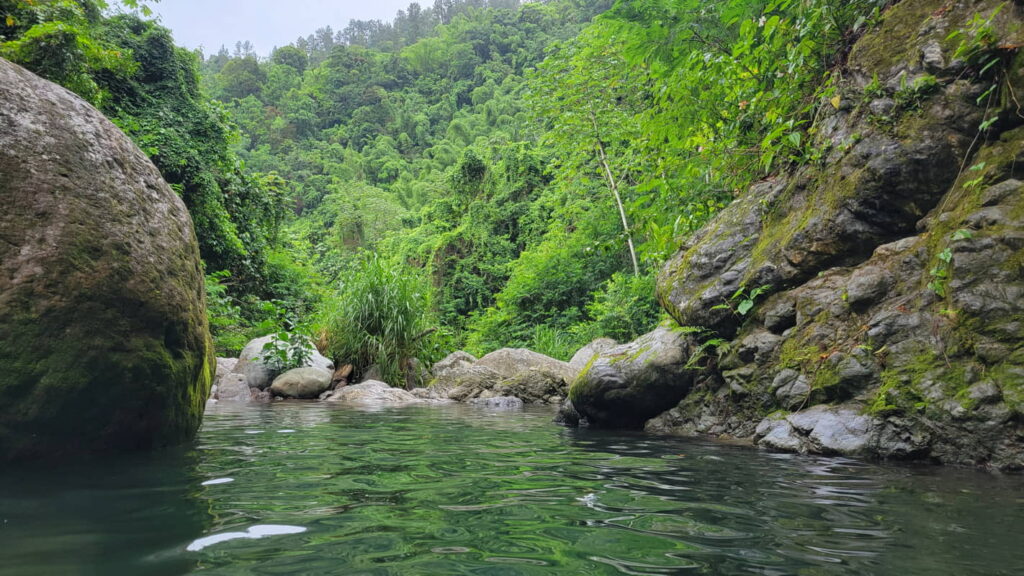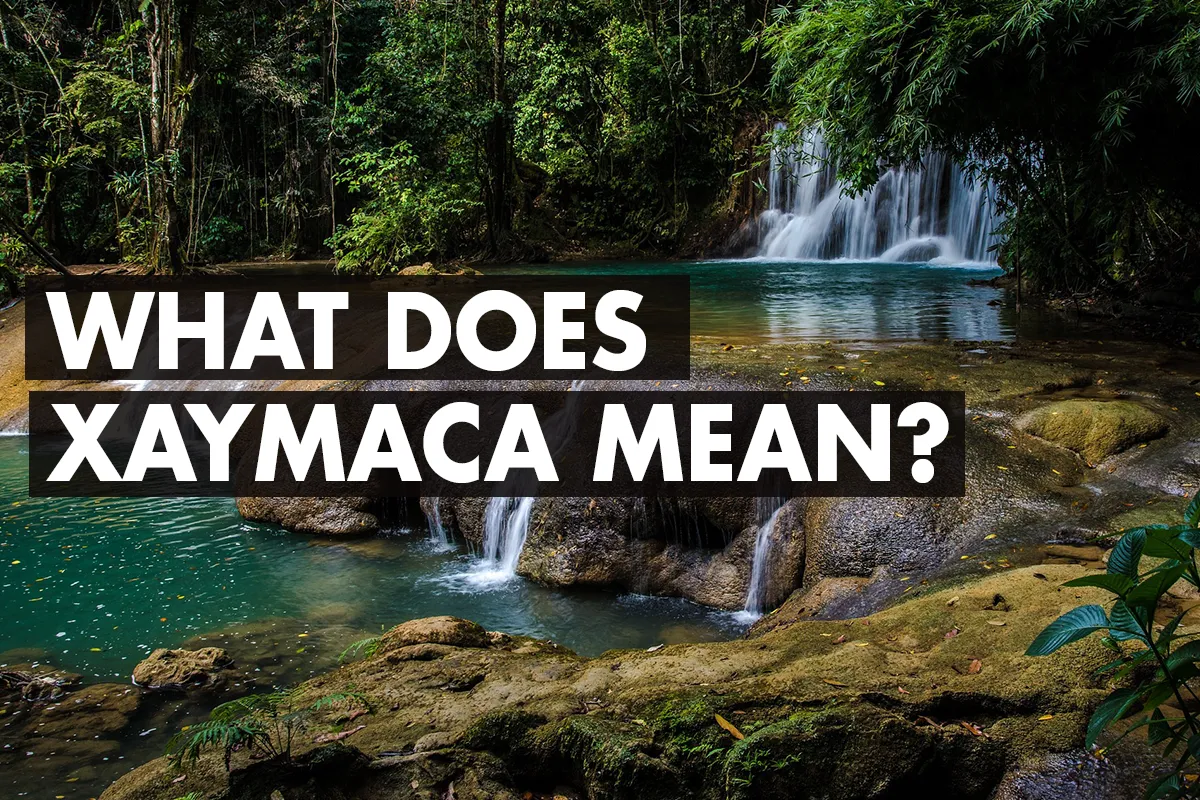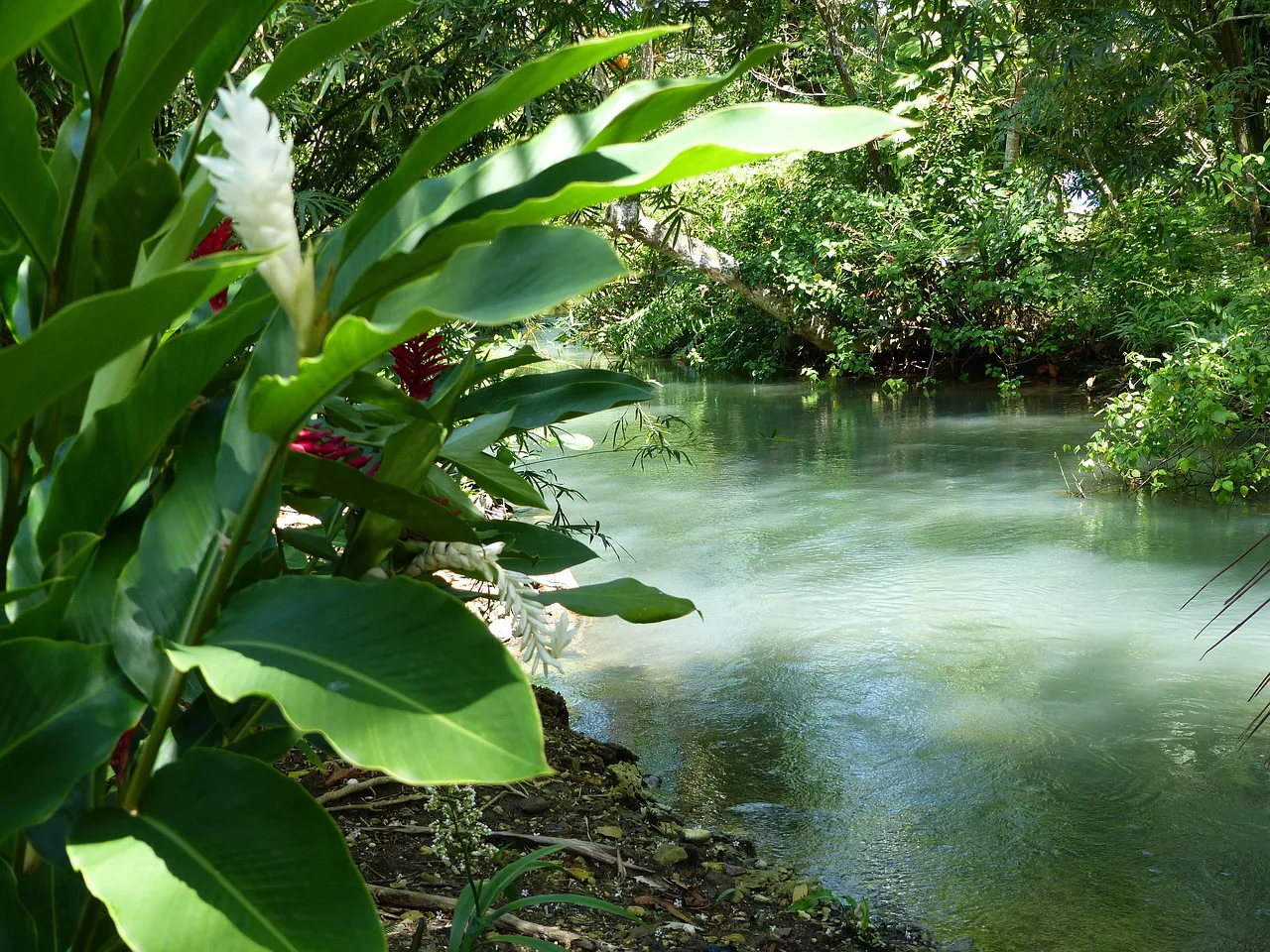
You might be wondering what the term “Xaymaca” means? You’ve probably seen this exotic word in relation the Jamaica and wondered about its meaning and significance.
In this article, we’ll not only give you the meaning, but look at the historical and cultural context of the word and its fascinating connection to the island’s rich heritage and natural beauty.
Let’s look at the fascinating story of “Xaymaca”.
Table of Contents
What Does Xaymaca Mean?

The term “Xaymaca” comes from the language of the Taíno people, the original inhabitants of Jamaica before European colonization. In their language, “Xaymaca” means “land of wood and water,” 1 a phrase that perfectly captures the island’s green landscapes and abundant natural resources.
Even today, “Xaymaca” remains a fitting description of Jamaica’s stunning natural beauty, from its cascading waterfalls and sandy beaches to its rich vegetation, towering trees, flowing rivers, and majestic mountains.
How Do You Pronounce Xaymaca?
“Xaymaca” is typically pronounced as “zay-mah-kuh.” Here’s a breakdown of the pronunciation:
- The “x” in “Xaymaca” is pronounced as a “z” sound.
- The “ay” is pronounced as in the word “say.”
- The “ma” is pronounced as in the word “map.”
- The “ca” is pronounced as in the word “car.”
Putting it together, it is pronounced as “zay-mah-kuh.”
How Did Xaymaca Change To Jamaica?

You might be wondering how did Jamaica get its name from Xaymaca? The transformation started during the colonial era when European explorers and colonizers arrived in the Caribbean.
Christopher Columbus first sighted the Jamaica in 1494 and originally called it Santiago2. However, this name was never adopted and the island retained its Taino name, Xaymaca. The Spanish, unfamiliar with the Taino language, phonetically recorded the name as “Xaymaca” or “Xamaica.”
As the English colonizers arrived on the island over time, the pronunciation evolved further. The adoption of “Jamaica” as the name for the island became widely accepted and has persisted to this day.
Xaymaca in Modern Jamaican Culture
Even though Xaymaca is a word from hundreds of years ago, it continues to hold significant cultural importance in modern Jamaican cultures.
The word finds its way into various aspects of Jamaican society, leaving its mark on music, art, and even festivals.
In reggae and dancehall music, artists often incorporate the term in lyrics and song titles, paying homage to their Jamaican roots.
Festivals and celebrations further showcase the cultural significance of “Xaymaca” in Jamaica. During the Carnival season, bands with names like “Xaymaca International” proudly parade through the streets, infusing the festivities with a sense of pride and belonging.
These instances show you how much the term has become interwoven with the fabric of Jamaican culture.
Wrapping it up
There you have it, a quick look into the meaning and significance of “Xaymaca”. From its Taino roots to its use in modern culture, “this word truly embodies the spirit of Jamaica.
If you’re hungry for more answers to intriguing questions like this, head over to our FAQ section. There you’ll find a treasure trove of fascinating questions about Jamaica waiting to be explored.
Footnotes
- Jamaica Information Service, The History of Jamaica, Jamaica Information Service, n.d., https://jis.gov.jm/information/jamaican-history/.
- Colony of Santiago. (2024, September 5). In Wikipedia, The Free Encyclopedia. Retrieved September 5, 2024, from https://en.wikipedia.org/wiki/Colony_of_Santiago